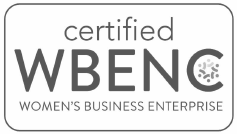Frequently asked questions. From the sales team to the C-suite, everybody fields them. And, from clients to prospects to strategic partners, nearly every audience has them. So, does your website need a FAQ page?
FAQs are another opportunity to appear in relevant organic search results
Think about how people search the internet from their smartphones. They often type or use talk-to-text to search for answers to a question. If you have a relevant match on your website and are offering helpful advice to answer that question, there is an opportunity for your website to appear in those matching organic search results.
To increase the likelihood of this occurring, think about the common words and phrases someone would use to ask the question as well as those that would appear in the response. To maximize search value, consider using a family of relevant keywords when crafting answers to your FAQ as opposed to only focusing on one keyword.
FAQs demonstrate an understanding of target audiences and buyer personas
Showing that your company has a deep understand of its target audiences helps to build trust in your brand and position your company as an expert and/or leader. Answering the questions clients, prospects and partners often have during the sales cycle on a frequently-asked-questions page is a great way to achieve the aforementioned goal.
When compiling the list of FAQs to include on your website, engage a representative group of team members to ensure all target audiences – as well as products/services, divisions/teams – are addressed.
An FAQ page is an opportunity to demonstrate thought leadership
Thought leadership also helps to build trust in a brand and enhance expert positioning. The responses included on the FAQ page of your website should demonstrate an appropriate level of expertise without giving away all of your deepest trade secrets. For example, if you are a green builder and people often ask about any chemicals used in the construction process, go beyond simply answering the question to offer some context about why consumers often have concerns about the use of XYZ materials and/or chemicals.
Posting FAQs on your website can help to pre-screen prospective clients
When searching for information about a product or service, consumers want to be educated before they face a hard sales pitch. FAQ pages are great educational opportunities and can also help to pre-screen clients. By addressing questions such as what types of companies are a good match for your firm, the types of projects you are best-suited to execute and what it is like to engage with your firm as a client, you can help to vet prospective clients, as those who aren’t aligned with the philosophy and approach showcased in your FAQ are unlikely to move further into the sales process with your firm.
An FAQ page can help drive traffic to other key areas of your website
FAQ pages are great places to link to other relevant areas of your website. For example, if you are answering a question about your firm’s capacity to execute a specific scope of work or type of project, include a link to a relevant case study in the response. If you are answering a question about how account teams are structured, include a link to a page that introduces your team or outlines your approach to client engagements.
Including a FAQ page on your website helps to educate prospective clients, vet leads and provides an opportunity to demonstrate a keen understanding of your target audiences. When crafting both your questions and responses, keep your target audiences top-of-mind and avoid being overly technical or using high volumes of jargon. You want the content to be accessible, digestible and, most importantly, help increase the volume of qualified leads that are coming through your website.


